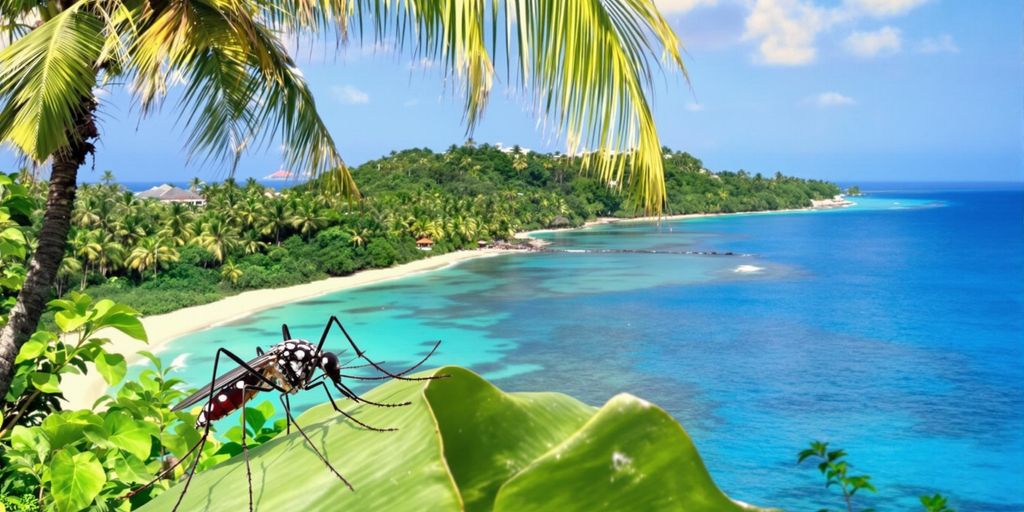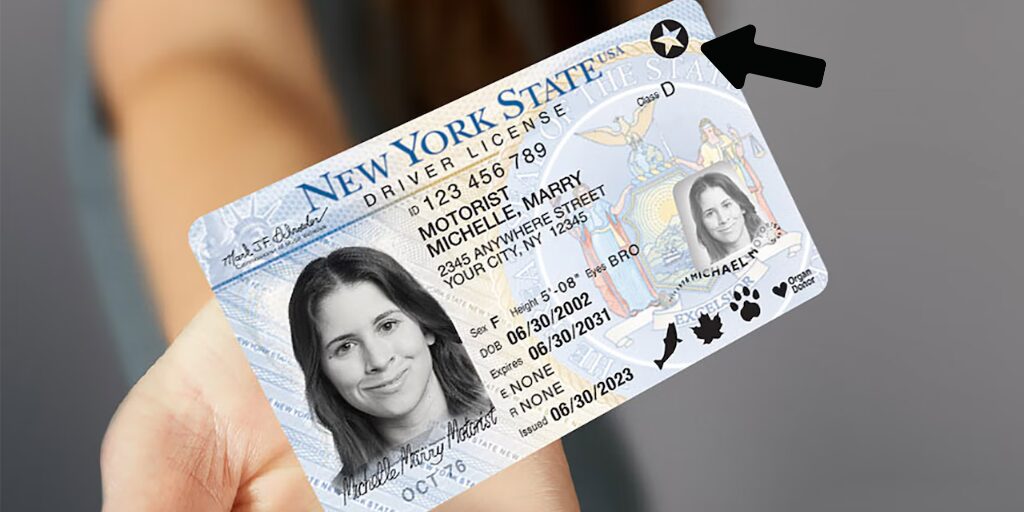Fiji is facing a concerning rise in dengue fever cases, prompting the CDC to issue a travel advisory. With reports of over 800 new infections in just the past week, travelers are being urged to be cautious and take preventive measures. This article will explore the dengue fever situation in Fiji, what travelers need to know, and how to stay safe while enjoying this beautiful destination.
Key Takeaways
Dengue fever cases are on the rise in Fiji, with over 800 new infections reported weekly.
The CDC has issued a Level 1 travel advisory, urging travelers to take standard precautions against mosquito bites.
Protect yourself by using insect repellent and wearing long sleeves and pants.
Stay informed about the situation and consult healthcare providers before traveling.
Fiji’s government is actively working to control the outbreak and educate the public on dengue fever.
Understanding Dengue Fever Risks
What Is Dengue Fever?
Okay, so dengue fever is this viral thing you get from mosquito bites. Specifically, it’s female mosquitoes that are infected that pass it on to you. Most of the time, you might not even know you have it, or it just feels like a mild flu. But sometimes, it can get pretty bad, and in rare cases, it can be deadly. It’s more common in tropical and subtropical areas, so places like Fiji are more at risk.
Symptoms of Dengue Fever
Symptoms usually pop up about 4 to 10 days after you get bitten, and they can stick around for up to a week. The big ones to watch out for are a really high fever (like 104°F), a killer headache, body aches (it’s sometimes called “break-bone fever” for a reason!), feeling sick to your stomach, and a rash. Most people just get those initial symptoms, but some people, after the fever, can get hit with worse stuff like a super bad headache, throwing up, and joint pain. If that happens, you need to get checked out.
Transmission Methods
So, how does dengue fever actually spread? Well, it’s all about the mosquitoes. These mosquitoes are most active during the day, so that’s when you really need to be careful. They bite someone who’s infected with dengue, then they bite you, and boom, you’re infected too. There’s no direct person-to-person spread, so you can’t catch it from just being near someone who has it. It’s all about those pesky mosquitoes.
Current Situation in Fiji
Recent Case Statistics
You should know that Fiji is currently dealing with a notable increase in dengue fever cases. Recent data shows a concerning trend, with case numbers exceeding the typical levels observed in previous years. The WHO reported over 800 new infections weekly in the past couple of weeks, a big jump from the usual 300 monthly cases. This surge prompted health officials to take action and issue warnings.
Government Response
The Fijian government is actively working to manage the dengue outbreak. Their efforts include:
Increased vector control operations to reduce mosquito populations.
Public awareness campaigns to educate people on prevention.
Distribution of resources to healthcare facilities to handle the increased patient load.
Public Health Measures
To combat the spread of dengue fever, several public health measures have been put in place. You should be aware of these:
Enhanced surveillance to track and monitor the spread of the virus.
Community engagement programs to promote cleanliness and eliminate mosquito breeding sites.
Issuance of public advisories urging people to take precautions, like using insect repellent and wearing protective clothing.
Travel Advisory Details
CDC’s Level 1 Advisory
Okay, so the CDC has issued a Level 1 Travel Advisory for Fiji because of the dengue fever outbreak. What does that even mean? Basically, it’s like a heads-up. Level 1 means you should practice usual precautions. It’s not a ‘don’t go’ warning, but more of a ‘be aware and be careful’ kind of thing. They want you to know there’s a risk, so you can take steps to protect yourself. Think of it as the CDC’s way of saying, “Hey, just so you know…”
Precautionary Recommendations
Alright, so what precautions should you actually take? It’s pretty straightforward:
Use mosquito repellent: Seriously, slather that stuff on. Look for something with DEET, picaridin, or oil of lemon eucalyptus. Reapply often, especially if you’re sweating or swimming.
Wear protective clothing: Long sleeves and pants are your friends, especially during dawn and dusk when mosquitoes are most active. Light colors are better because they attract fewer mosquitoes.
Stay in accommodations with screens or air conditioning: This helps keep the bugs out while you’re sleeping. If you’re camping or staying somewhere without screens, use a mosquito net.
Travel Insurance Importance
Don’t even think about skipping travel insurance. Seriously. If you get sick in Fiji, medical care can be expensive, and you might need to be evacuated. Travel insurance can cover those costs, plus things like trip cancellations or lost luggage. Make sure your policy covers medical expenses, evacuation, and any activities you plan to do. Read the fine print, and know what you’re covered for. It’s better to be safe than sorry, especially with a health risk in the mix.
Preventive Measures Against Dengue Fever
Using Insect Repellent
Okay, so you want to avoid dengue fever, right? The first line of defense is insect repellent. Make sure you’re slathering on that bug spray, especially if you’re going out during the day when those pesky mosquitoes are most active. Look for repellents that contain DEET, picaridin, or oil of lemon eucalyptus. And don’t be shy with it – reapply as directed on the label, especially after swimming or sweating a lot. I usually keep a small bottle in my bag so I’m always prepared.
Wearing Protective Clothing
Another simple but effective trick is to wear the right clothes. I know it’s hot in Fiji, but try to wear long-sleeved shirts and long pants, especially during dawn and dusk when mosquitoes are most active. Loose-fitting clothing is better because mosquitoes can bite through tight clothes. Think of it as a fashion statement that also protects you from getting sick. Plus, light-colored clothing can help you spot mosquitoes more easily.
Staying in Safe Accommodations
Where you stay can also make a big difference. Try to book accommodations that have air conditioning and window/door screens. Air conditioning helps keep mosquitoes away, and screens prevent them from getting inside in the first place. If you’re staying somewhere without these amenities, consider using a mosquito net, especially while you sleep. I always check for these things when I’m booking a place, just for peace of mind. You can also use mosquito coils for extra protection.
Impact on Tourism in Fiji
Cruise Ship Operations
So, you’re thinking about a cruise to Fiji, huh? Well, cruise lines are keeping a close eye on this dengue situation. They’re working to make sure passengers are aware of the risks and how to protect themselves. You’ll probably see more announcements about using insect repellent and maybe even some changes to shore excursions to avoid high-risk areas. It’s all about balancing the fun of a vacation with a bit of caution. Cruise lines don’t want to cancel trips, but they also don’t want anyone getting sick. They might adjust itineraries or offer more onboard activities to keep people away from mosquito hotspots. It’s a fluid situation, so stay updated with your cruise line’s announcements.
Visitor Safety Guidelines
Okay, let’s talk safety. If you’re heading to Fiji, you need to be smart. The local authorities and tourism operators are putting out guidelines, and you should pay attention. This isn’t just about slapping on some sunscreen; it’s about serious mosquito bite prevention. Think long sleeves, effective insect repellent, and avoiding being outside during peak mosquito hours (dawn and dusk). Hotels are stepping up their game too, with mosquito nets and spraying programs. Basically, everyone’s trying to make sure you have a good time without becoming a dengue statistic. Here’s a quick rundown:
Use mosquito repellent with DEET or picaridin.
Wear long-sleeved shirts and pants, especially at dawn and dusk.
Stay in accommodations with mosquito screens or air conditioning.
Economic Implications
Dengue outbreaks can really mess with a country’s economy, especially one that relies on tourism like Fiji. If people get scared to travel, hotels, restaurants, and tour operators all take a hit. It’s a domino effect. The government is trying to manage the situation by investing in public health measures and trying to keep the outbreak under control. They’re also working on public health campaigns to reassure tourists that Fiji is still a safe and enjoyable destination. But let’s be real, a travel advisory from the CDC isn’t exactly great for business. The hope is that with quick action and clear communication, the impact can be minimized. It’s a tough balancing act between protecting public health and keeping the economy afloat. The Fiji Times is reporting that the Ministry of Health is urging people to take protective measures against dengue fever.
Health Recommendations for Travelers
Consulting Healthcare Providers
Before you even think about packing your bags, schedule a visit with your doctor or a travel clinic. Seriously, don’t skip this step. They can give you the lowdown on any necessary vaccinations, medications, and specific health advice tailored to your medical history and your trip to Fiji. It’s also a good time to discuss any pre-existing conditions you have and how to manage them while you’re away. Think of it as getting a personalized health roadmap for your vacation.
Staying Informed
Keep tabs on the latest health advisories and updates from reliable sources like the CDC and WHO. Things can change quickly, and you want to be in the know. Check these websites regularly before and during your trip. It’s also a good idea to sign up for travel alerts so you get notified of any important updates in real-time. Being informed is your first line of defense.
Recognizing Symptoms Early
Know what dengue fever symptoms look like. We’re talking high fever, severe headache, joint and muscle pain, nausea, vomiting, and a rash. If you start feeling any of these while you’re in Fiji or even after you get back, don’t brush it off. See a doctor right away and tell them you’ve been in an area with dengue fever. Early diagnosis and treatment can make a big difference. Don’t wait and hope it goes away – get it checked out!
Community Awareness and Education
Public Health Campaigns
Okay, so, what’s being done to actually tell people about dengue fever in Fiji? Well, a lot of it comes down to public health campaigns. You’ll probably see posters, hear announcements, and maybe even catch some local TV spots talking about the risks and how to avoid getting sick. These campaigns are super important because they’re trying to reach everyone, from locals to tourists. It’s all about getting the word out there in a way that’s easy to understand. They often use simple language and visuals to explain things like mosquito breeding grounds and the importance of using repellent. It’s not always the most exciting stuff, but it’s definitely needed.
Role of Local Authorities
Local authorities are really stepping up, too. They’re the ones on the ground, organizing clean-up drives to get rid of standing water (prime mosquito real estate!), and making sure public spaces are sprayed with insecticide. They also work with community leaders to spread the word and answer questions. Think of them as the first line of defense. They’re also responsible for reporting cases and tracking outbreaks, which helps the government and health organizations get a handle on the situation. It’s a big job, and they’re working hard to keep everyone safe. The U.S. State Department is also monitoring the situation.
Engaging with Tourists
And what about you, the tourist? Well, there’s a big push to make sure visitors are informed as soon as they arrive. Hotels and resorts are usually given information packets to hand out, and you might see signs at the airport or in tourist hotspots. The goal is to make sure you know the risks and how to protect yourself. It’s not just about handing out pamphlets, though. Some places are even offering workshops or talks about dengue fever. Plus, they’re encouraging tourists to ask questions and report any symptoms they might be experiencing. It’s all about creating a safe and informed environment for everyone. Here’s a few things you can do:
Read the information provided by your hotel or tour operator.
Ask questions if you’re unsure about anything.
Report any symptoms to a healthcare provider immediately.
Global Context of Dengue Fever
Rising Cases Worldwide
You know, it’s not just Fiji dealing with dengue fever. Globally, we’re seeing an increase in cases, and it’s kind of alarming. Places you might not expect, like parts of Europe, are starting to see transmission. It used to be mostly a tropical thing, but now it’s popping up in new areas. This is probably due to climate change and increased travel, which are helping mosquitoes spread to new places. It’s a wake-up call that we need to take this seriously, no matter where we live. For example, in 2023, there was a surge in transmission of dengue in Europe.
WHO’s Stance on Dengue
The World Health Organization (WHO) is pretty concerned about dengue, as they should be. They’re constantly monitoring outbreaks and trying to coordinate international efforts to control the disease. The WHO emphasizes prevention, like mosquito control and personal protection, because there’s no specific cure for dengue. They also push for early detection and proper clinical management to reduce the risk of severe dengue. It’s a big job, and they’re working with countries to improve their surveillance and response capabilities. They also provide guidelines and support for public health campaigns.
Comparative Analysis with Other Regions
When you look at dengue fever, it’s interesting to compare different regions. Some areas, like Southeast Asia, have been dealing with dengue for a long time, so they have well-established surveillance and control programs. Others, like parts of Africa and the Americas, are seeing a more recent increase in cases. The challenges vary depending on the region. For example, some places have limited resources for mosquito control, while others struggle with public awareness and compliance. Understanding these differences is key to developing effective strategies. In the Pacific Islands, Fiji reported 8418 cases in 2022 and 11,522 cases in 2023, reflecting a 37% increase. In 2024 Samoan authorities declared a dengue outbreak after the number of cases exceeded 200 in the space of around five months.
Long-Term Outlook for Fiji
Future Health Initiatives
Looking ahead, Fiji is likely to ramp up its health initiatives to combat dengue fever. This could mean more investment in research to understand the specific strains circulating in the region and how they’re evolving. Expect to see more targeted interventions based on this research, like localized mosquito control programs and maybe even trials of new dengue vaccines. It’s not just about reacting to outbreaks, but getting ahead of the curve.
Monitoring and Surveillance
Effective monitoring and surveillance are key to long-term dengue control. You’ll probably see Fiji strengthening its disease surveillance systems. This involves:
Improving data collection and analysis to detect outbreaks early.
Training healthcare workers to recognize and report dengue cases promptly.
Using technology, like mobile apps and online platforms, to track and share information about dengue activity.
Potential for Outbreaks
Despite the best efforts, the potential for future dengue outbreaks in Fiji remains a concern. Climate change, with its impact on rainfall patterns and mosquito breeding habitats, is a big factor. Also, the constant movement of people and goods in and out of Fiji means that new dengue strains could be introduced at any time. So, while Fiji is working hard to control dengue, it’s something that will likely need ongoing attention for the foreseeable future.
Stay Safe While Traveling to Fiji
As the situation in Fiji develops, travelers should stay alert and take the CDC’s advice seriously. Dengue fever is no joke, and with cases on the rise, it’s important to protect yourself. Make sure to pack insect repellent, wear long sleeves, and choose places to stay that keep mosquitoes out. If you’re planning a trip, check in with your doctor before you go and keep an eye on updates from health officials. Enjoying Fiji’s beauty is possible, but safety should always come first.
Frequently Asked Questions
What is dengue fever?
Dengue fever is a disease caused by a virus that is spread through mosquito bites. It can cause flu-like symptoms.
What are the symptoms of dengue fever?
Symptoms include fever, headache, pain behind the eyes, joint and muscle pain, rash, and mild bleeding.
How is dengue fever transmitted?
Dengue fever is mainly spread by the Aedes mosquito, which bites during the day.
What is the current situation in Fiji regarding dengue fever?
Fiji is seeing a rise in dengue cases, with over 800 new infections reported weekly.
What precautions should travelers take when visiting Fiji?
Travelers should use insect repellent, wear long sleeves, and stay in places with good mosquito protection.
Is there a travel advisory for Fiji?
Yes, the CDC has issued a Level 1 travel advisory for Fiji, advising travelers to take precautions.
What should I do if I think I have dengue fever?
If you have symptoms, seek medical help right away, especially if you have a high fever or severe pain.
How can I protect myself from mosquito bites?
You can protect yourself by using insect repellent, wearing protective clothing, and staying in air-conditioned places.




